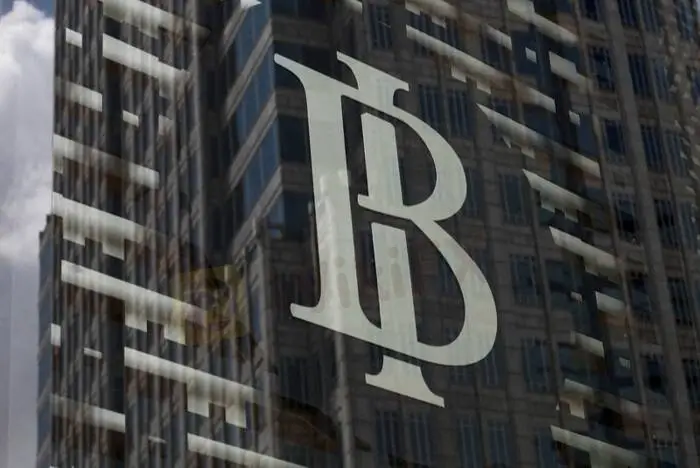简体中文
繁體中文
English
Pусский
日本語
ภาษาไทย
Tiếng Việt
Bahasa Indonesia
Español
हिन्दी
Filippiiniläinen
Français
Deutsch
Português
Türkçe
한국어
العربية
Bank Indonesia to pull rates lever in Q3, June move possible: Reuters Poll
Abstract: Bank Indonesia will wait a few more months to raise rates from a record low despite rising inflation and aggressive moves by the U.S. Federal Reserve, according to a Reuters poll of economists that showed a growing minority expect a
Bank Indonesia will wait a few more months to raise rates from a record low despite rising inflation and aggressive moves by the U.S. Federal Reserve, according to a Reuters poll of economists that showed a growing minority expect a hike next month.
Although inflation surged to 3.47% in April, the highest in more than four years, it is still within Bank Indonesias 2%-4% target range, suggesting the central bank is not under immediate pressure to raise interest rates.

All but two of 27 economists in the May 12-19 poll expected Bank Indonesia (BI) to hold its benchmark seven-day reverse repurchase rate at a record low 3.50% at its May 24 meeting. Two expected a 25 basis point hike.
Nearly one-third of respondents, 8 of 27, said the first rate rise would be in June, and the remaining 17 said it would come at one of the monthly meetings in July-September.
“Next month, we expect policymakers to lay the ground for a hawkish pivot, factoring in a firm 1Q22 GDP, rising inflation and softer currency, to unwind accommodative policy settings,” said Radhika Rao, senior economist at DBS Bank, who with the majority expects the first rate rise to come in Q3.
“With the U.S. rate hiking cycle on a fast lane as well as domestic considerations, regional central banks have begun to normalise policy earlier than anticipated to contain inflationary expectations and second-round effects.”
If BI is correct in its expectation inflation will remain within its target this year, economists say it will deliver a gradual pace of hikes.
But if inflation breaks above target theres a risk of an earlier move, as happened recently in Malaysia and India.
“Recent economic and financial market developments support the case for BI to start its rates lift-off as soon as the upcoming meeting,” said Krystal Tan, economist at ANZ, who is expecting a 25 basis points hike at the upcoming meeting.
“Economic activity is back above pre-pandemic levels… while inflation is gaining momentum. These developments add impetus for BI to shift its stance sooner rather than later. Even if BI doesnt hike in May, it is likely to take on a more hawkish stance.”
Either way, further interest rate rises are likely.
Twenty-four of 27 respondents expected rates at 4.00% or higher by end-year, including six saying 4.00%, 11 at 4.25%, five at 4.50% and two at 4.75%. The remaining three said rates would only get to 3.75% by year-end.
A majority of respondents from a smaller sample who had forecasts going to the end of next year, 11 of 18, saw rates hitting 5.00% or higher, back to where they were before the COVID-19 pandemic. Two expected rates to hit 5.75% by then.
(Reporting by Devayani Sathyan; Polling by Arsh Mogre and Prerana Bhat; Editing by Ross Finley, Alexandra Hudson)
Disclaimer:
The views in this article only represent the author's personal views, and do not constitute investment advice on this platform. This platform does not guarantee the accuracy, completeness and timeliness of the information in the article, and will not be liable for any loss caused by the use of or reliance on the information in the article.
WikiFX Broker
Latest News
FCA Warns Against 10 Unlicensed or Clone Firms
CySEC Warns Against 14 Unlicensed Investment Websites
Top Currency Pairs to Watch for Profit This Week - March 31, 2025
Will natural disasters have an impact on the forex market?
Philippines Deports 29 Indonesians Linked to Online Scam Syndicate in Manila
Exposing the Top 5 Scam Brokers of March 2025: A Closer Look by WikiFX
Gold Prices Climb Again – Have Investors Seized the Opportunity?
Webull Launches SMSF Investment Platform with Zero Fees
Australian Regulator Warns of Money Laundering and Fraud Risks in Crypto ATMs
AI-Powered Strategies to Improve Profits in Forex Trading
Currency Calculator







